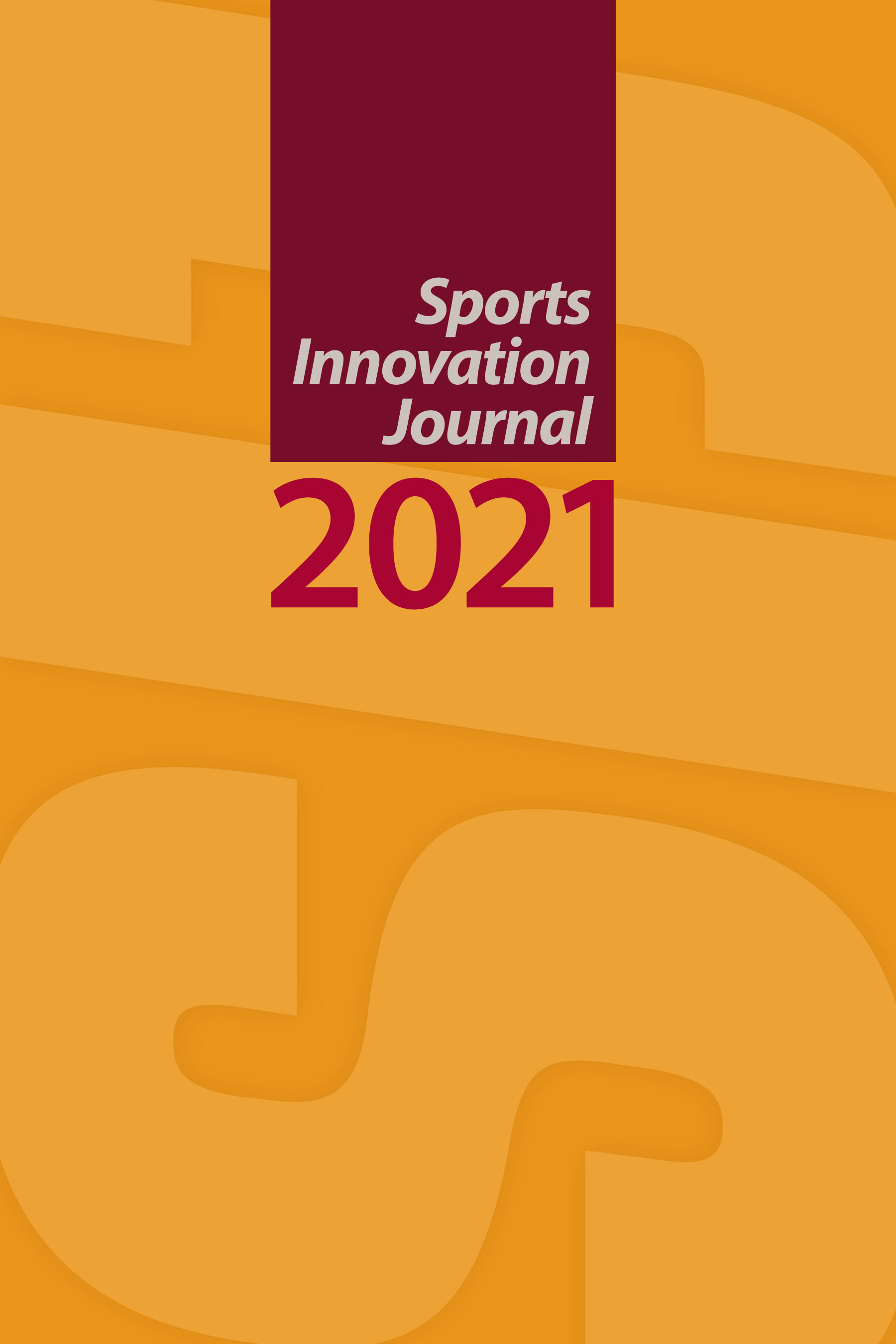“I Have Grown”: A Case Study of Student-Athlete Career Development at Clemson University
DOI:
https://doi.org/10.18060/25196Keywords:
case study, career development, mentorship, programmin, student-athletes, internshipAbstract
Student-athletes are burdened with demands, expectations, and stressors that pose challenges to their personal development, rendering many student-athletes ill-prepared for career choices outside the sports milieu. Internships are vital to the skill development for all students. Clemson’s University Professional Internship and Co-op Program (UPIC) offers on-campus internship opportunities for qualifying students. Informed by student involvement theory (Astin, 1984), the purpose of this case study was to examine Clemson student-athlete’s perceptions of participating in the UPIC program. Although the student-athletes experienced challenges during their internships, the data revealed that the internship was instrumental in the professional development of the participants, specifically in the areas of communication, collaboration, and work ethic. Overall, 88.89% of student-athletes felt their internship was very relevant to their career goals. This case study provides an example of cross-campus collaborative programming that assisted in the career development of student-athletes and should be implemented at other colleges and universities.
References
Astin, A. W. (1996). Involvement in learning revisited: Lessons we have learned. Journal of College Student Development, 37, 123-134.
Bardick, A., Bernes, K., Chorney, D., Gunn, T., McKnight, K., & Orr, D. (2009). Life after sport: Athletic career transition and transferrable skills. Journal of Excellence, 13, 63-77.
Brown, M. T. (2013). College athletics internships: The case for academic credit in college athletics. Am. UL Rev., 63, 1855.
Center for Career and Personal Development. (n.d.) Core competencies. https://career.sites.clemson.edu/core/
Clemson University (2011). 2020 Roadmap. http://www.clemson.edu/2020/documents/road-map-publication.pdf
Comeaux, E. (2011). Examination of faculty attitudes toward division 1 college student-athletes. College Student Affairs Journal, 30(1) 75-87.
Elo, S., Kääriäinen, M., Kanste, O., Pölkki, T., Utriainen, K., and Kyngäs, H. (2014). Qualitative content analysis: A focus on trustworthiness. SAGE open, 4(1), 2158244014522633. https://doi.org/10.1177/215824401452263
Khandkar, S. H. (2009). Open coding. University of Calgary Press.
Kelley-Hall, C. (2011) On-campus internships: maximizing opportunities for student engagement[White paper]. Clemson University Center for Career and Professional Development. https://career.sites.clemson.edu/internship_programs/UPIC_program/docu ments/White_Paper_2011.pdf
Kilgo, C. A., Sheets, J. K. E., & Pascarella, E. T. (2015). The link between high-impact practices and student learning: Some longitudinal evidence. Higher Education, 69(4), 509-525.
Linnemeyer, M.R., & Brown, C. (2010). Career maturity and foreclosure in student athletes, fine arts students, and general college students. Journal of Career Development, 37(3), 616- 634.
Merriam, S. B. (1998). Qualitative research and case study applications in education. San Francisco: Jossey-Bass Publishers.
Merriam, S. B. (2009). Qualitative research: A guide to design and implementation. (3rd Edition). Jossey-Bass.
McCarthy, C. (2016, September). Innovative strategies allow student-athletes to access study abroad, summer internships. College Athletics and the Law, 12.
Moiseichik, M., Stokowski, S., Hinsey, S., & Turk, M. (2019). Athletic identity and career maturity of women’s basketball student athletes. Journal of Sport. 7(1), 1-22.
National Association of Colleges and Employers (2015). Career readiness defined. Retrieved from: https://www.naceweb.org/career-readiness/competencies/career-readiness-defined/
National Collegiate Athletic Association (2020). 2020-21 Guide for the college bound student-athlete. Retrieved from: http://fs.ncaa.org/Docs/eligibility_center/Student_Resources/CBSA.pdf
Navarro, K. M., Rubin, L. M., & Mamerow, G. (2020). Implementing student-athlete programming: A guide for supporting college athletes. Routledge.
Nunamaker, T. D. & Cawthon, T. W. (2018, November 1). Bringing on campus internships to your campus: Challenges and Lessons Learned. National Association of Colleges and Employers. https://www.naceweb.org/career-development/internships/bringing-on-campus-internships-to-your-campus-challenges-and-lessons-learned/
O'Neill, N. (2010). Internships as a high-impact practice: Some reflections on quality. Peer Review, 12(4), 4-8.
Ortiz, L.A., & MacDermott, C. (2018) Integrative liberal learning: A case for internships and other high impact practices as an essential component in students professional preparation. The Journal of Higher Education Theory and Practice 18(6) 123-142.
Paule-Koba, A. L. (2019). Identifying athlete’s majors and career aspirations: The next step in clustering research. Journal of Athlete Development and Experience, 1(1), 1-15.
Petitpas, A, Danish, S., McKelvain, R., & Murphy, S. (1992). A career assistance program for elite athletes. Journal of Counseling & Development, 7, 383-386.
Rubin, L. M. & Moses, R. A. (2017). Athletic subculture within student-athlete academic centers. Sociology of Sport Journal, 34(4), 317-328.
Rubin, L. M., Lombardi, A. A., Felice, K., & Donato, M. A. (2020). Reflections of the undergraduate research experience of three former NCAA Division I athletes, [Special Issue]. Perspectives on Undergraduate Research and Mentoring, 9(1), 1-16.
Savickas, M. L. (2002). Career construction: A developmental theory of vocational behavior. In D. Brown & Associates (Eds.), Career choice and development (4th ed., pp. 149-205). San Francisco, CA: Jossey-Bass.
Smith, A. B., & Hardin, R. (2018). Female student-athletes’ transition out of college competition. Journal of Amateur Sport, 4 (2), 61-86.
Stokowski, S. Paule-Koba, A. L., & Kaunert, C. (2019). Former college athletes’ perceptions of adapting to transition. Journal of Issues in Intercollegiate Athletics, 12, 403-426.
Stokowski, S., Rubin, L. M., Rode, C. R., Fridley, A., & Shkorupeieva, S. (2020a). Separate kingdoms: Academic advisers’ perceptions of college athletes and athletic departments. The Mentor: Innovative Scholarship on Academic Advising, 22, 16-32.
Stokowski, S., Fridley, A., Kim, K., Forsythe, S. A., & Roberts, S. (2020b). Faculty role models: The perceived mentorship of student-athletes, [Special Issue]. Perspectives on Undergraduate Research and Mentoring, 9(1), 1-15.
Turick, R., Bopp, T., & Swim, N. (2019). How do I do life? The challenges of preparing student-athletes for professional roles, Journal for the Study of Sports and Athletes in Education, 1-24. https://doi.org/10.1080/19357397.2019.1669367
Downloads
Published
Issue
Section
License
Copyright (c) 2021 Kelly Coffin, Sarah Stokowski, Amanda L. Paule-Koba, Michael Godfrey

This work is licensed under a Creative Commons Attribution 4.0 International License.
Copyright to articles published in Sport Innovation Journal is retained by the author(s).


